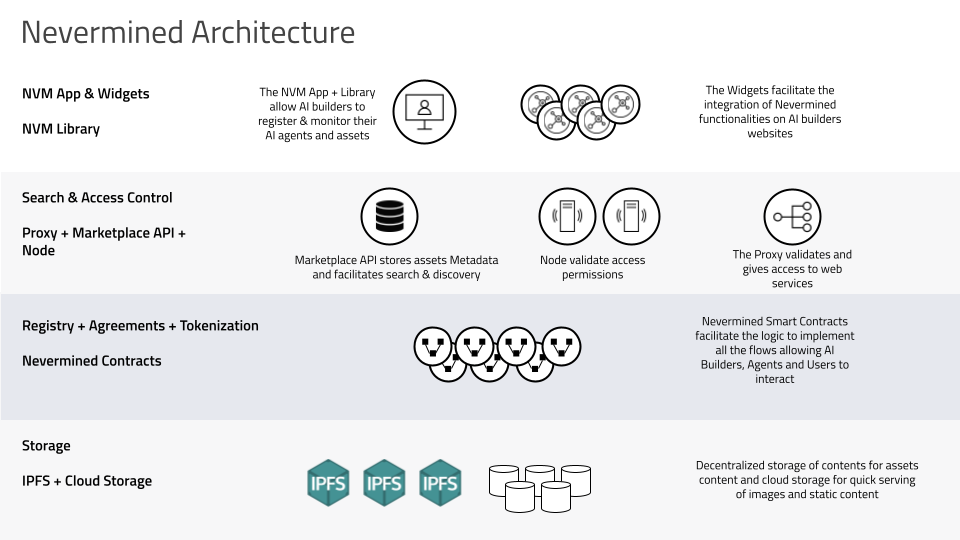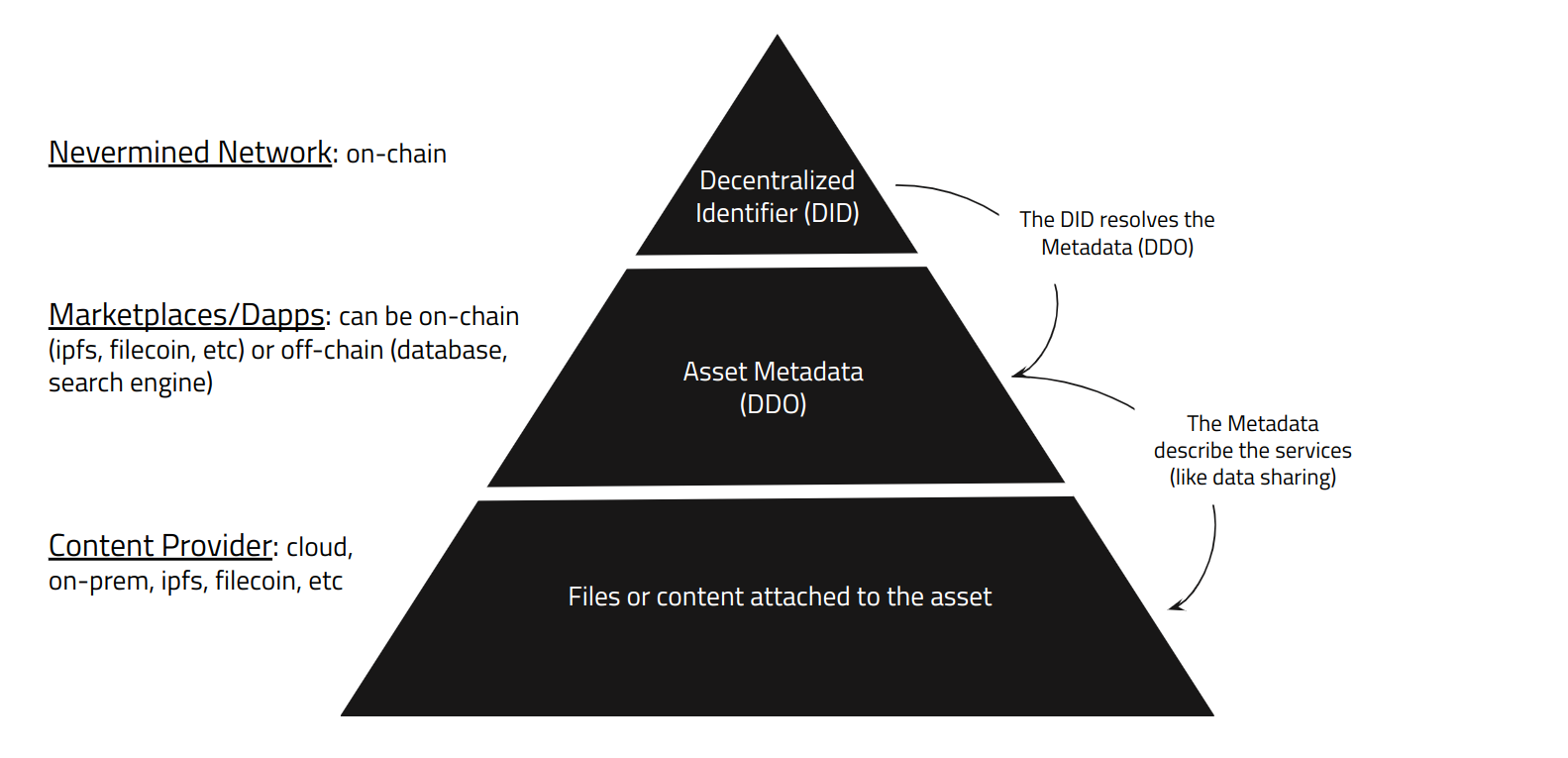Intro to Nevermined Architecture
Nevermined is the AI payments protocol delivering the Web3 standard for AI-to-AI transactions. At Nevermined, we think AI payments are a protocol, not a feature, and we're building the Open Source software to power AI's future.
Nevermined AI payments protocol and the reference implementation are powered by Nevermined AG.
Capabilities
- Payments — content creators can define the conditions to access their assets. Nevermined manages the settlement of the payment and distribution of access to these assets.
- Assets Tokenization via NFTs — content creators can tokenize their digital assets and make them available to their community of users allowing selling them, exclusive access to NFT holders, secondary market and royalties enforcement
- Data Sharing — enabling the sharing and access of digital assets between untrusted parties in the data ecosystem
- Data In-Situ Computation — allowing the execution of models and algorithms without moving the data
- Marketplace — the user interfaces gluing all together and facilitating user interactions with the rest of the digital ecosystem
- Data Monetization and Incentives — facilitating the monetization of existing organization assets and the different mechanisms to incentivize the users of a digital ecosystem
- Data Governance — making possible to build the agreements that allow to handle an ecosystem with multiple and independent participants Data Interactivity - creating, minting and bridging omnichain digital assets and NFTs across protocols and blockchains to unlock a frictionless user experience,

Digital Ecosystem
A digital ecosystem is an environment where different users can interact around digital assets. So Nevermined is built around these digital assets and how they can be used between different parties.
Everything is about assets
An asset in Nevermined is the representation of a phisical or digital thing. It is registered by the origital creator or a provider. As an abstract concept, an asset can represent a piece of digital art, a dataset, an algorithm or piece of software, a manufactured good or any other kind of physical or digital entity.
An asset in Nevermined is composed by 3 things:
- The unique registry of the asset (on-chain) including the Decentralized Identifier of the asset (aka DID) and the reference to the asset metadata (aka DDO).
- The metadata describing the asset. This includes things like a description of the asset, author, creation date, etc. The metadata of the asset can be stored anywhere (off-chain in a database or on-chain in IPFS, Filecoin, etc).
- All the files attached to the asset. They can be of any type, format, size, encrypted or not, etc. The files can be stored in the cloud, on-premise, public network, etc.

Nevermined don't store the files attached to an asset. So if you register an asset you can keep all of them wherever you want (in a private or public storage). In Nevermined we just keep the DID and some metadata to facilitate the discovery of the asset.
The main reason of an asset in Nevermined is to offer certain services from the publishers of that asset to the rest of the world. These services are flexible and typically can be understood as something like the following example:
As a owner of this asset, I want to allow others to download the contents associated
to it if they pay 1 ETH.
The above example is a simple service offered by an asset owner published on Nevermined
where it allows data sharing to anyone paying 1 ETH. Nevermined allows the registration
of assets with attached services like that one, and orchestrates all the trading to
mediate in the delivery of that service in a decentralized and secure way.
Nevermined implements this and some other services around digital assets, allowing to build use cases where content creators and/or publishers can create robust interactions without having a central entity keeping the assets of the users.
This last part is important. Nevermined don't store your private files, your credentials or own any of the assets you register in any of the networks.